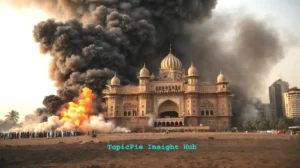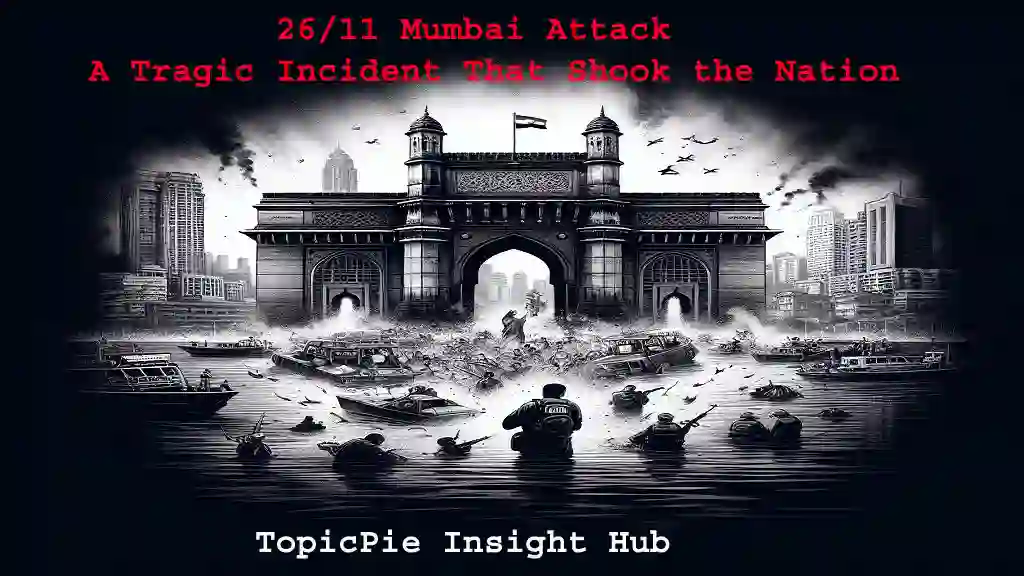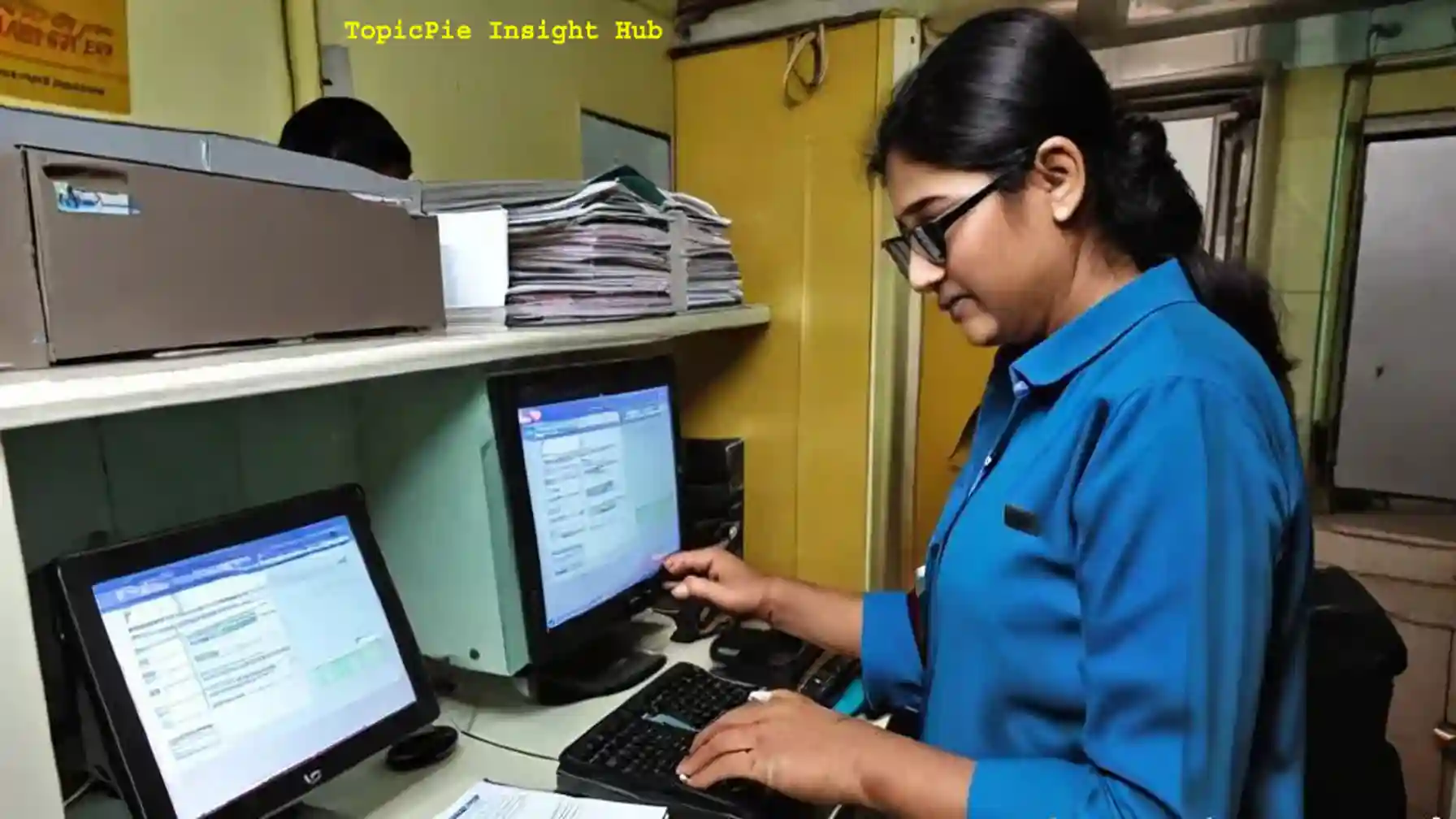Introduction: The tragic incident and its impact
The date was November 26, 2008. A day that would forever be etched in the collective memory of India. On this fateful night, Mumbai, a vibrant financial hub and cultural melting pot, faced a horrifying tragedy. It shook the nation profoundly. The meticulously planned 26/11 Mumbai Attack left scars on both the physical landscape and the hearts of every Indian.
As gunfire echoed through iconic landmarks such as Taj Mahal Palace Hotel and Oberoi Trident Hotel, panic ensued. The Chhatrapati Shivaji Terminus railway station, Leopold Café, and Nariman House became scenes of terror, cutting short innocent lives mercilessly.
In an unprecedented show of audacity and cruelty, a group of heavily armed terrorists infiltrated these targets with one goal in mind – to strike fear into our hearts and challenge our unity as a nation. This brazen act revealed not only their destructive capabilities but also raised questions about their motives and intentions.
Today marks over a decade since that tragic night unfolded. In this blog post, our goal is to delve into the 26/11 Mumbai Attack, uncovering its motives and heinous acts. We’ll shed light on the devastating fallout and explore how this incident has shaped India’s security infrastructure. We will also discuss ongoing efforts to prevent future attacks.
Join us in remembering those lost too soon. Pay tribute to brave souls who protected us in those dark hours. Let’s stand united against terrorism, fostering vigilance in our communities. Through unity, we build resilience, preventing such horrors from repeating.
Understanding the 26/11 Mumbai Attack:
The 26/11 Mumbai Attack was a tragic incident that unfolded on November 26, 2008. It shook the nation to its core and left an indelible mark on the collective psyche of India. A group of terrorists meticulously planned and executed the attack, infiltrating Mumbai via sea and launching coordinated strikes at multiple locations.
The Attack Unveiled:
On that fateful evening, armed militants attacked various prominent landmarks in Mumbai, including luxury hotels like Taj Mahal Palace and Oberoi Trident, the bustling Chhatrapati Shivaji Terminus railway station, Leopold Café, Cama Hospital, and Nariman House. Their aim was clear – to create chaos and instill fear among the populace.
Uncovering the Motives:
While it is essential to understand the motives behind such heinous acts of terror, it is equally important not to give undue attention or glorify these perpetrators. Lashkar-e-Taiba (LeT), a Pakistan-based terrorist organization known for its extremist ideologies, claimed responsibility for this brutal attack.
The motives behind their actions can be traced back to their radical ideology rooted in hatred and religious extremism. Their aim was not only to cause widespread destruction but also to strain relations between India and Pakistan further.
It is crucial to note that terrorism knows no borders or boundaries; it thrives on sowing seeds of discord between nations. Despite persistent denials from certain quarters within Pakistan’s establishment, investigators have conclusively established links with elements based in Pakistan during the planning and execution stages of this attack.
“Explore insightful discussions! Join my Quora Space. Engage in meaningful conversations on diverse topics. Your perspectives matter!”
Understanding these motives helps us recognize how critical it is for countries across the globe to unite against terrorism actively. By sharing intelligence information promptly, implementing robust security measures at various levels- national as well as international- we can collectively combat such threats effectively.
To prevent future attacks like these requires constant vigilance from both citizens and authorities alike. Cooperation amongst different agencies responsible for national security is paramount. Advances in technology and intelligence sharing have played a pivotal role in preventing many such attacks, but the battle against terrorism is far from over.
The 26/11 Mumbai Attack was a tragic event that claimed innocent lives and shook the nation. The motives behind this attack were rooted in extreme ideologies and aimed to create chaos and spread terror. It is essential for countries to come together and actively combat terrorism by sharing intelligence, implementing robust security measures, and staying vigilant at all times. We must remember the victims of this attack and honor their memory by standing united against such heinous acts of terror.
Unraveling the 26/11 Mumbai Attack: Understanding the Devastating Fallout:
The devastating fallout of the 26/11 Mumbai attack left a trail of loss, destruction, and profound impact on India. Lives were snatched away mercilessly, leaving families shattered and communities in grief.
Loss of innocent lives and the destruction caused
Innocent lives were lost as terrorists unleashed their brutality across multiple locations in Mumbai. The Taj Mahal Palace Hotel, Oberoi Trident Hotel, Chhatrapati Shivaji Terminus railway station, Leopold Cafe, Cama Hospital – all became targets of this heinous act. The attackers showed no mercy for anyone – they killed men, women, children – anyone who happened to be in their path.
The destruction caused by the attack was immense. Buildings were ravaged by fire and explosions; bullet-riddled walls stood witness to the horrors that unfolded during those terrifying days. The scars left behind are a constant reminder of the tragedy that shook the nation to its core.
Impact on India
This attack had far-reaching consequences for India’s security infrastructure. It exposed vulnerabilities within our systems and highlighted gaps that needed immediate attention. The incident served as a wake-up call for authorities to reassess and strengthen our intelligence gathering capabilities and counter-terrorism efforts.
India realized that it cannot fight terrorism alone; it requires international collaboration to combat this global menace effectively. Cooperation with other nations became crucial in sharing intelligence information and coordinating efforts against terrorist organizations operating across borders.
The attack also emphasized the need for better coordination among various agencies responsible for national security. Intelligence sharing between local police forces, state police departments, central intelligence agencies like RAW (Research & Analysis Wing), IB (Intelligence Bureau) needed improvement to prevent such attacks from happening again.
Furthermore, the impact on India’s economy was significant. The tourism industry, which contributes significantly to the country’s GDP, suffered a severe blow. With images of destruction and chaos broadcasted globally, tourists became hesitant to travel to India, resulting in a decline in foreign tourist arrivals.

The attack also had a profound effect on India’s financial capital – Mumbai. The city’s image as a safe and secure business hub was shattered, causing investors to pull out their investments and put future projects on hold. It took years for Mumbai to regain its status as an attractive investment destination.
Also Read: India’s Humanitarian Aid to Gaza Amid Israel-Hamas Conflict
Moreover, the 26/11 attack had a lasting psychological impact on the people of India. The trauma and fear caused by the relentless attacks left citizens feeling vulnerable and unsafe. It created an atmosphere of suspicion and mistrust among different communities, leading to social tensions.
The attack also highlighted the role of media in such events. While coverage by media outlets helped spread awareness and keep people informed about the situation, there were also instances of irresponsible reporting that could have potentially endangered lives. The incident raised questions about responsible journalism during times of crisis.
India’s response to this attack was swift – with security forces launching counter-terrorism operations that lasted for four days before all terrorists were neutralized. But it also exposed the gaps in our security infrastructure, which needed urgent attention.
In the aftermath of 26/11, India implemented several security measures to strengthen its defenses. The National Investigation Agency (NIA) was formed to investigate and prosecute cases related to terrorism. The government also enacted laws such as the Unlawful Activities (Prevention) Act (UAPA) and amended existing anti-terrorism laws to enhance its legal framework against terror activities.
Furthermore, India intensified efforts to enhance bilateral relations with neighboring countries, particularly Pakistan, the believed origin of the attackers. However, progress in this regard has been minimal due to continued cross-border terrorism and lack of cooperation from Pakistan’s end.
The 26/11 Mumbai attack profoundly impacted India. It resulted in the tragic loss of innocent lives and extensive destruction. This event acted as a wake-up call for the nation, compelling a reevaluation of its security infrastructure. Collaboration with other nations in the fight against terrorism became imperative. While significant steps have been taken, maintaining vigilance and continuous efforts to strengthen defenses remain crucial for India.
Lessons Learned and Ongoing Efforts:
Strengthening National Security:
In the wake of the 26/11 Mumbai attack, India was forced to reevaluate and enhance its security measures. The government realized that it needed to invest in state-of-the-art technology, intelligence gathering capabilities, and training for law enforcement agencies. As a result, significant steps were taken to strengthen national security.
One crucial measure implemented was the establishment of specialized anti-terrorism units within various police forces across the country. These units received advanced training in counter-terrorism tactics and techniques to effectively combat any future threats. Additionally, there was an increased focus on intelligence sharing between different agencies at both central and state levels.
To enhance public safety, authorities implemented stringent security measures at key locations, including airports, railway stations, and major public gatherings. They installed advanced surveillance systems and enhanced screening procedures for individuals entering these areas.
International Cooperation:
Recognizing that terrorism knows no boundaries or borders, India actively sought cooperation from other countries in its fight against terrorism. Bilateral agreements were signed with several nations for intelligence sharing and joint operations targeting terrorist networks.
Additionally, India played an active role in international forums like the United Nations (UN) to advocate for stronger collaboration among nations in combating terrorism. It emphasized the need for standardized protocols on extradition of terrorists as well as freezing their financial assets globally.
Furthermore, initiatives like Interpol’s Red Notices system helped facilitate coordination between countries by issuing global arrest warrants for wanted terrorists involved in cross-border attacks.
The importance of global collaboration cannot be overstated when it comes to countering terrorism effectively. Sharing information regarding emerging threats has become critical given how terrorist organizations operate across multiple jurisdictions using modern communication technologies.
By working together with other nations through bilateral agreements and international forums dedicated to counter-terrorism efforts like INTERPOL or UN conventions against terror financing – we can collectively dismantle terrorist networks worldwide while also preventing future attacks from occurring.
26/11 Mumbai Attack: Homage to Victims and Salute to Brave Security Forces’ Valor
The 26/11 Mumbai Attack left a deep scar on the nation’s collective memory. As we reflect on this tragic incident, it is essential to remember and pay homage to the victims who lost their lives in this horrifying act of terrorism. Their families continue to grieve for their loved ones, and our hearts go out to them in solidarity.
The attack targeted multiple locations across Mumbai. Terrorists strategically chose prominent landmarks such as the Taj Mahal Palace Hotel, Chhatrapati Shivaji Terminus railway station, Leopold Cafe, and Nariman House. The intent was to cause maximum damage and instill fear among innocent civilians.
Also Read: Strategic Move Amidst Israel-Hamas Conflict: Israel’s Proposal to Employ Indian Workers
Amidst chaos and terror, acts of incredible bravery emerged from our security forces. The valiant efforts demonstrated by police officers, commandos, firefighters, and other emergency responders showcased their unwavering commitment to protecting citizens against all odds. They risked their own lives selflessly while saving countless others during those dark days.
It is crucial that we acknowledge these brave individuals who showed immense courage in the face of danger. They stood as beacons of hope amidst despair – embodying resilience and determination even when confronted with unimaginable circumstances.
Let us also remember that this attack was not just an assault on Mumbai but an affront to India’s unity and peace-loving citizens throughout the country. It shook us at our core but also united us in our resolve to fight against terrorism.
As we honor those who lost their lives in this tragedy, let it serve as a reminder that we must remain vigilant against such acts of violence. We should actively participate in fostering harmony within our communities while supporting initiatives aimed at preventing future attacks.
While time heals wounds slowly but surely; let us never forget what happened on that fateful day—the grief endured by families torn apart—and channel our energy towards creating a safer and more secure future for all. Together, we can build a society that stands strong against hatred and extremism.
Strengthening Vigilance Post 26/11 Mumbai Attack: Fostering Community Involvement to Prevent Future Threats and Attacks
Vigilance and resilience are key in preventing future attacks like the 26/11 Mumbai Attack. It is essential for individuals, communities, and security forces to remain vigilant and proactive in identifying potential threats. By staying alert and reporting any suspicious activities or behavior to the authorities, we can play a crucial role in averting such tragic incidents.
Community involvement is equally important in maintaining a safe environment. When people come together, they create a strong support network that fosters cooperation and information sharing. Establishing neighborhood watch programs is crucial. Organizing community awareness campaigns about safety measures is equally vital. Encouraging open communication among residents significantly contributes to deterring terrorism.
Furthermore, it is imperative for security forces to constantly update their strategies and techniques in response to evolving threats. Regular training sessions should be conducted to enhance their preparedness level. Collaboration between different intelligence agencies at local, national, and international levels is also vital as terrorists often operate across borders.
Also Read: The War in Ukraine: Historical Roots, Devastating Impact, Global Call for Aid
In addition to these efforts, utilizing advanced technology such as surveillance systems with facial recognition software can help identify potential suspects before they carry out their plans. Strengthening cybersecurity infrastructure is another critical aspect of preventing cyber-attacks that may aid terrorist organizations.
It’s important not only to focus on prevention but also on rehabilitation initiatives aimed at countering radicalization within our society. Addressing socio-economic disparities through education opportunities and promoting inclusive policies can reduce recruitment by extremist groups.
Let us remember that vigilance should not breed fear or suspicion; rather it should cultivate an environment of trust where everyone feels responsible for the safety of their community. Together with constant vigilance, resilience will allow us to bounce back stronger from any adversity we may face.
By remaining vigilant and resilient while actively engaging with our communities against terrorism, we send a clear message – one that says we will not bow down or succumb but instead stand united against those who seek to harm us.
Conclusion:
In the wake of the 26/11 Mumbai Attack, it is imperative that we reflect on the devastating impact it had on our nation. This tragic incident shook us to our core and reminded us of the ever-looming threat of terrorism. We cannot forget the loss of innocent lives and the destruction caused by this attack.
Amidst the darkness, ongoing efforts and lessons learned give us hope for a safer future in India. has taken significant measures to strengthen national security and enhance counter-terrorism efforts. International cooperation plays a crucial role in combating terrorism, emphasizing its undeniable importance.
As we remember the victims who lost their lives on that fateful day, we pay homage to their memory and acknowledge the bravery shown by our security forces. They risked everything to protect others, embodying resilience in the face of adversity.
Moving forward, vigilance and community involvement remain crucial in preventing future attacks. We must stay united against terrorism, standing strong together as a nation.
The 26/11 Mumbai Attack was a dark chapter in our history but let it serve as a reminder for all of us to remain vigilant in safeguarding our communities from such acts of violence. By working together and sharing information across borders, we can build a world where peace triumphs over hatred.
Let us never forget those who lost their lives on that fateful day and honor them by striving towards an inclusive society free from fear – one where every individual can live without constant threat or terror. Together, we have the power to create change; let’s stand united against terrorism!
Jai Hind, Jai Bharat!








